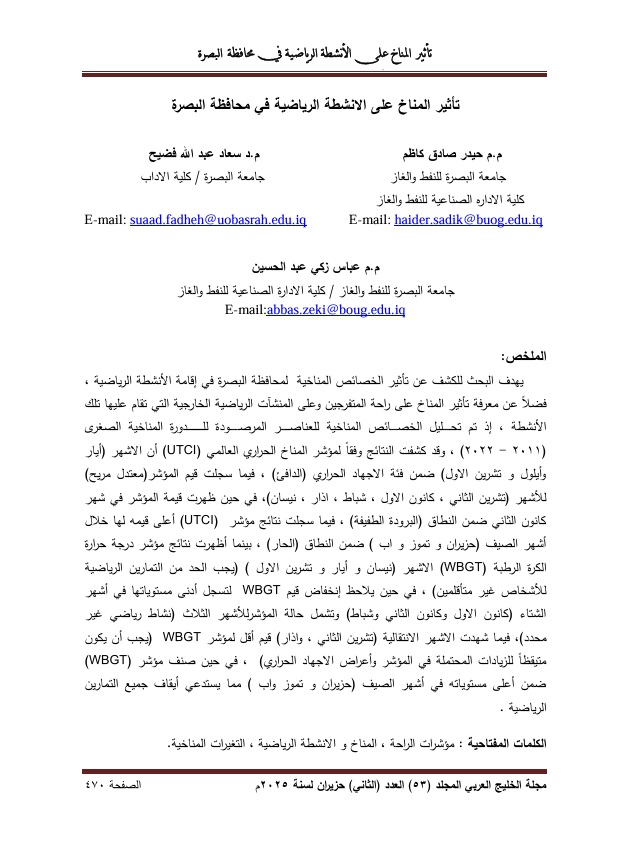The Impact of Climate on Sports Activities in Basra Governorate
Keywords:
Comfort indices, climate and sports activities, climate changeAbstract
This research aims to examine the impact of climatic characteristics of Basra Governorate on the organization of sports activities, while also investigating how climate influences spectator comfort and the condition of outdoor sports facilities hosting such events. The study analyzes the climatic elements observed during the recent microclimatic cycle (2011–2022).
The results, based on the Universal Thermal Climate Index (UTCI), show that the months of May, September, and October fall under the category of "warm thermal stress". Meanwhile, the index indicates "comfortable-moderate" conditions for November, December, February, March, and April, and "slight cold stress" for January. However, the summer months (June, July, and August) recorded the highest UTCI values, classifying them as "hot" periods.
In contrast, the Wet Bulb Globe Temperature (WBGT) index indicates that April, May, and October fall under the category “Exercise should be limited for non-acclimatized individuals”. The lowest WBGT values were recorded in winter months (December, January, and February), which fall under the category “Unrestricted sports activity”. The transitional months of November and March showed lower WBGT values, suggesting a need for caution due to potential increases in index values and signs of heat stress.
Meanwhile, the highest WBGT values occurred during the summer months (June, July, and August), necessitating a complete suspension of all sports activities due to extreme thermal stress.




